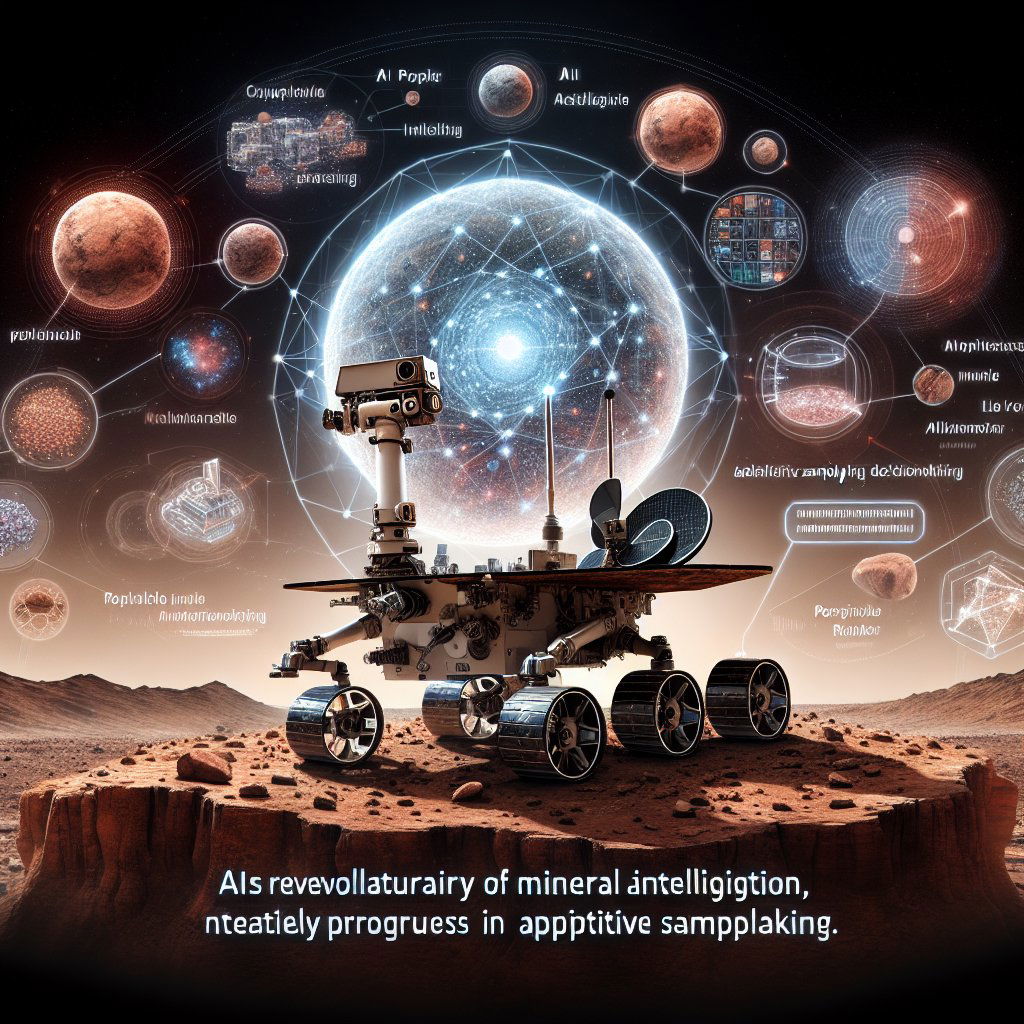Image created by AI
AI-Driven Mars Exploration: Perseverance's Pioneering Advances
The Perseverance Mars rover, a technological marvel from NASA, has been taking space exploration to new frontiers by incorporating advanced artificial intelligence (AI) to autonomously conduct complex scientific inquiries. For nearly three years, Perseverance has been testing cutting-edge AI software to scrutinize Martian minerals within the rocks, which is pivotal in the quest for understanding Mars' geological history and the ancient microbial life it may have supported.
The mission's significant advancement lies in the AI's role in assisting PIXL (Planetary Instrument for X-ray Lithochemistry), a spectrometer engineered by NASA's Jet Propulsion Laboratory (JPL). This sophisticated instrument performs detailed chemical analysis, mapping minerals across rock surfaces, and thus helping scientists infer if the past environment on Mars could have sustained life.
This AI technology, termed "adaptive sampling," autonomously guides PIXL to potential rock targets, adjudicating in real-time which of them warrant a closer look — a process that, prior to this innovation, would have necessitated radioing back to Earth for further instructions. Its real-time capability confers a level of instantaneity to the decision-making process that is unprecedented for space missions.
The software enables PIXL to swiftly pinpoint locations on rocks that are of high scientific interest. Abigail Allwood, JPL's principal investigator for PIXL, highlights how this feature shifts the rover from merely registering an intriguing hint to enabling actual scientific conclusions, all without human intervention for each micro-decision.
In the grander scope of Mars exploration, Perseverance collects promising rock samples, sealing them in titanium tubes for the potential Mars Sample Return campaign. However, the rover's use of AI isn't limited to adaptive sampling. Its "cousin" rover, Curiosity, situated some 2,300 miles away, has also made headway using AI to autonomously ablate rocks with a laser, analyzing the resultant gases to determine chemical compositions.
Furthermore, Perseverance boasts navigation capabilities that are AI-enhanced, allowing the rover to traverse the Martian surface more effectively. These innovations underscore the increasing autonomy and efficiency in data collection and analysis made possible through AI tech.
PIXL’s operation is dependent on meticulously accurate positioning, a challenge conquered using six tiny robotic legs called a hexapod. Due to the temperature variations on Mars affecting the rover's arm, the hexapod performs microscopic adjustments, fine-tuning the spectrometer's aim to achieve the near-perfect placement required for analysis.
AI's second boon to PIXL is in data acquisition. By firing an X-ray beam at a rock, PIXL generates a high-resolution grid revealing the chemical signature of present minerals. When specific minerals are identified, PIXL can execute a "long dwell" to intensify data collection, an area where AI's machine learning capabilities will continue to expand the instrument's effectiveness.
David Thompson from JPL elucidates the adaptability of PIXL's AI, likening it to a Swiss army knife, configurable and responsive to the evolving scientific objectives. Additionally, the rigorous testing of AI under Martian conditions is seen as preparatory work for future missions that could traverse even more remote locales within the solar system — destinations where communication delays necessitate greater autonomy.
Perseverance's mission aligns with NASA's broader Moon to Mars strategy, which includes the Artemis lunar missions as stepping stones toward human habitation of Mars. Through these interconnected projects, NASA, with international partnerships such as with ESA, aspires to refine the exploration and examination of space for humanity's accrued wisdom and unfold the mysteries of our celestial neighbors.










